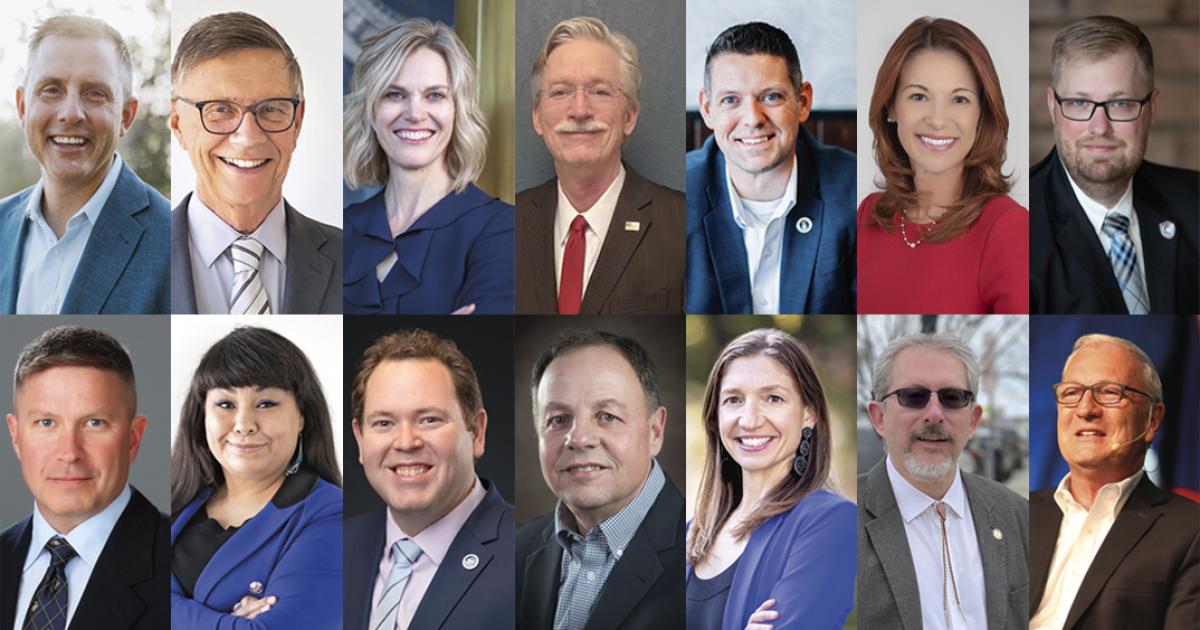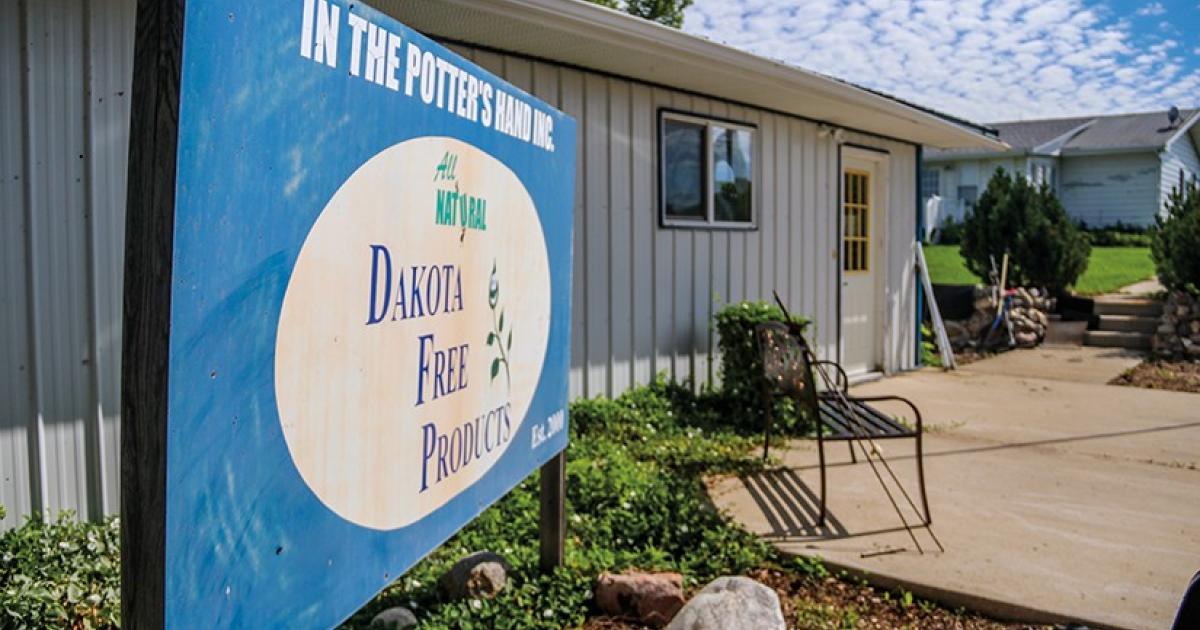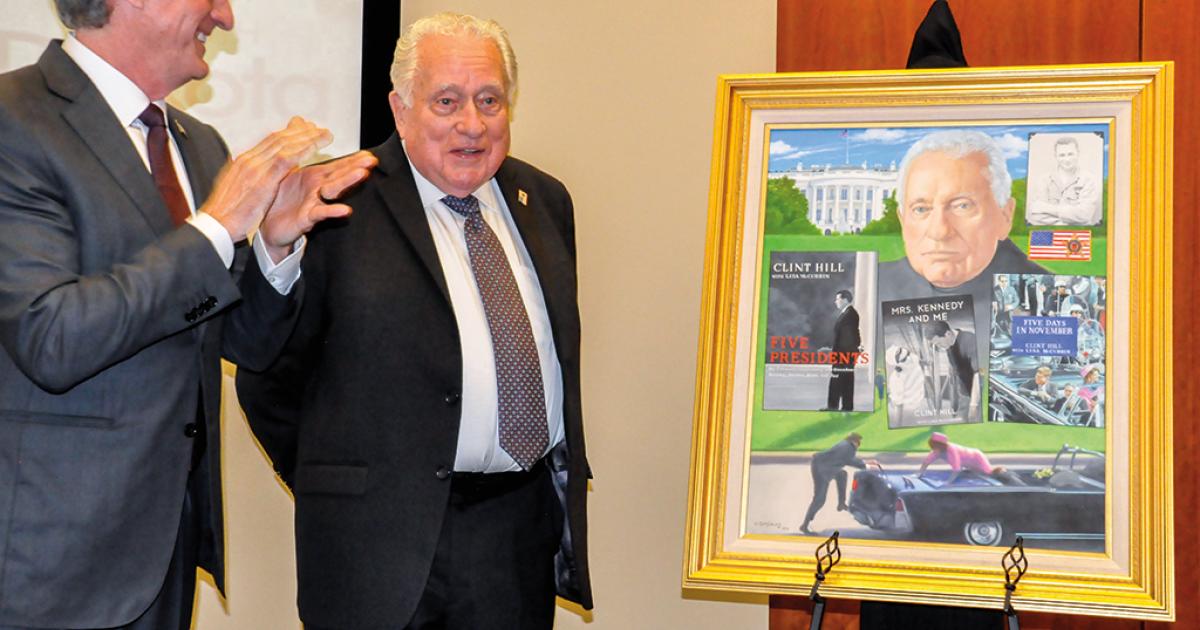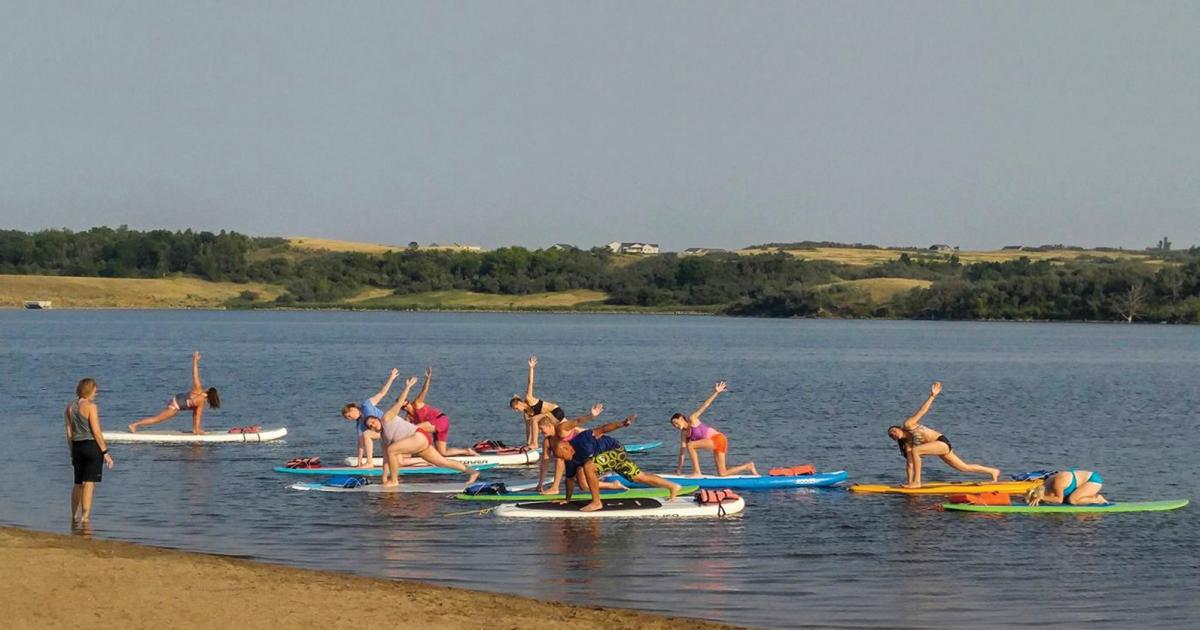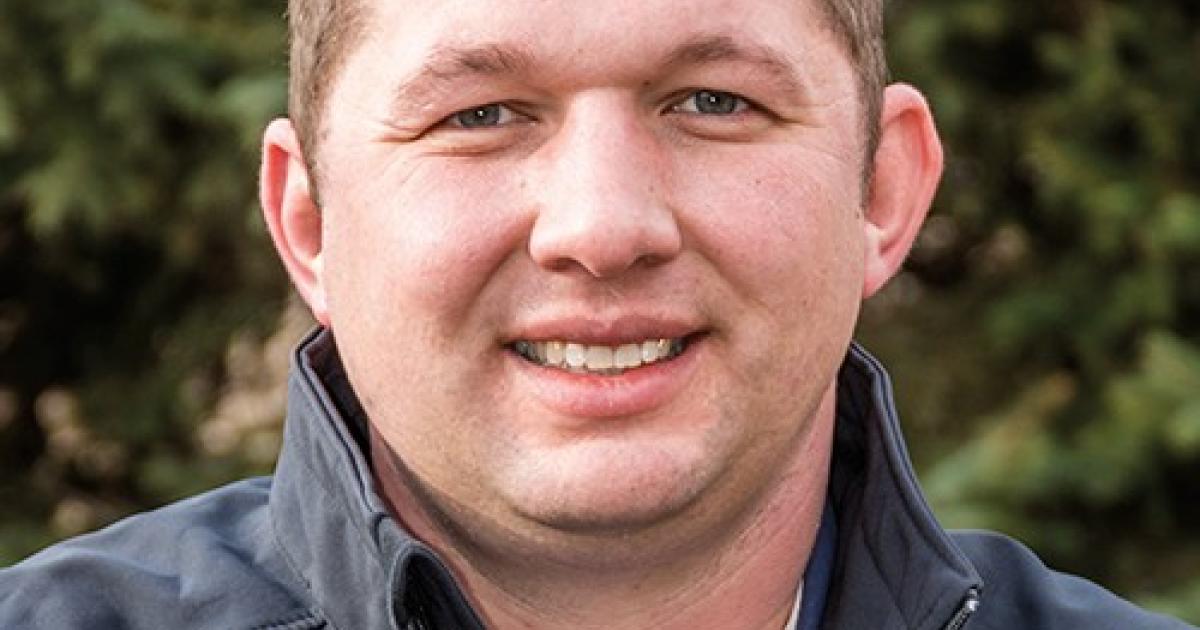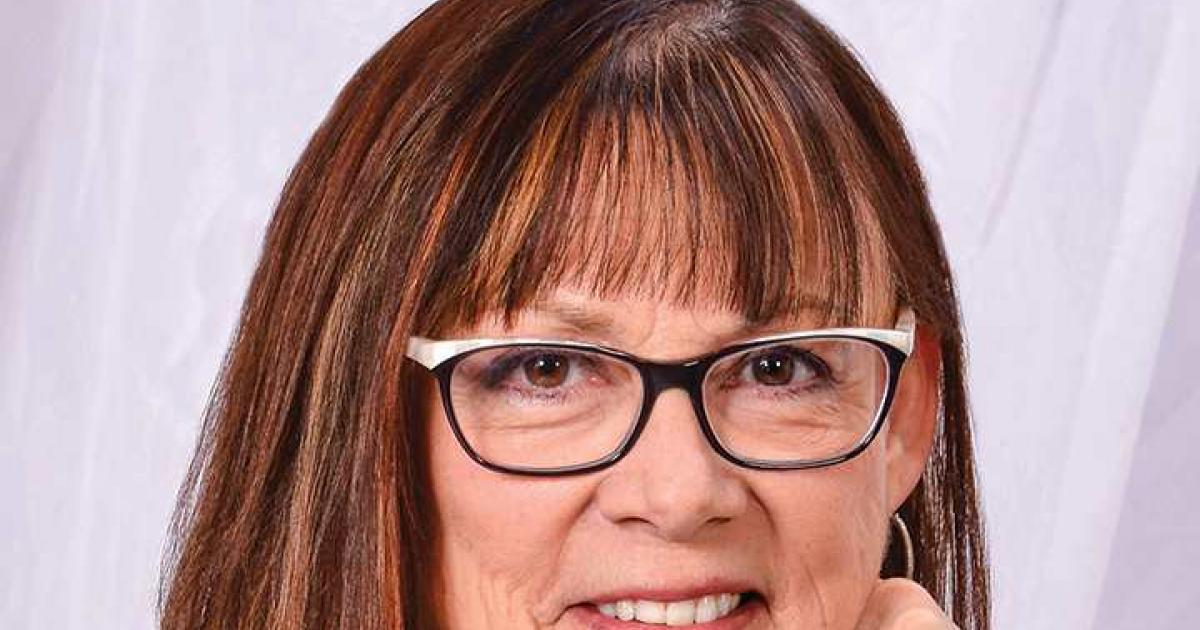Meet the candidates seeking statewide office in North Dakota
In election years, North Dakota Living offers its platform as the state’s largest circulated publication to familiarize voters with the candidates seeking statewide office.
North Dakota Living posed two questions to candidates in select statewide races, including U.S. senator, representative in Congress, governor and lieutenant governor, and public service commissioner. Their responses are published here through page 31.
Additionally, the Democratic-NPL and Republican candidates for governor, Merrill Piepkorn and Kelly Armstrong, face off this month in the North Dakota Living “Recipe Roundup” section on pages 32 and 33, where each shared a favorite family recipe!
North Dakota voters will also elect a state auditor, state treasurer, insurance commissioner and superintendent of public instruction in the Nov. 5 general election.
North Dakota Living, the N.D. Association of Rural Electric Cooperatives and North Dakota’s electric cooperatives do not endorse or recommend candidates for election.
Editor’s note: We wish to thank the candidates for their participation and perspectives. Due to the magazine’s production schedule, independent candidates who filed paperwork to run for statewide office after the June 11 primary election are not included in this candidate Q&A. Visit vote.nd.gov for a complete slate of candidates and to view your sample ballot.
U.S. SENATOR (6-year term)
The “Chevron deference,” which allowed federal agencies to “fill in the blanks” where a law might be ambiguous, was recently overturned by the U.S. Supreme Court. Many analysts are discussing the impacts on the executive and judicial branches, but the decision will also require Congress to be more specific in legislation. North Dakota has long objected to federal overreach in energy and agriculture. How will you approach enacting laws that are specific to what authority federal agencies have following this decision, at a time when reaching a consensus to get a bill passed can be difficult?
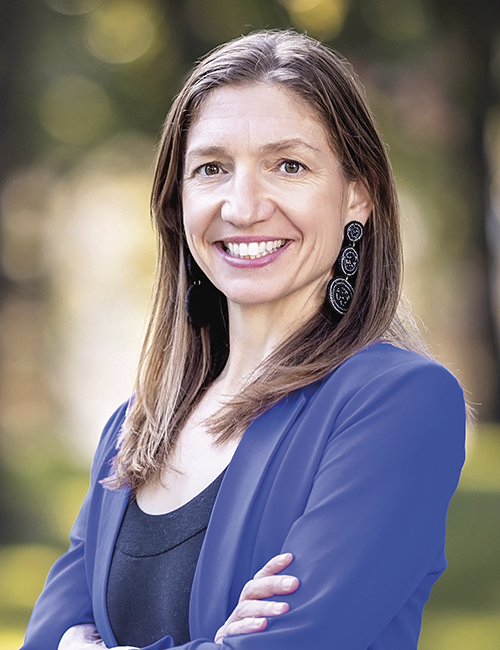 KATRINA CHRISTIANSEN
KATRINA CHRISTIANSEN
Democratic-NPL
www.katrinaforussenate.com
Katrina Christiansen lives in Jamestown with her husband and three children. She understands the struggles of working people. Growing up, her family lost the farm and needed the help of federal programs to get by, helping her become her high school’s valedictorian. She earned her doctorate in agricultural engineering and has three patents.
Our current Congress is ineffective, polarized and unable to update legislation. As a result, Congress has abdicated “legislating” to the executive branch and the courts. By overturning the “Chevron deference,” the court snatched up power our Constitution did not aim for them to have. The Supreme Court and lower courts now have the power of interpretation of outdated legislation.
We all deserve to know the drugs we pick up from the pharmacy are safe. We all deserve to have safe work environments. We all deserve to feel like our assets are safe in banks. We all deserve to know the new financial investment we have signed on to isn’t a junk bond or a scheme. We all deserve to know our drinking water is safe to consume and our air is safe to breathe.
We can have protections and have a strong economy, but we have to have elected leaders who are willing to act.
When I am in the U.S. Senate, I will work with other members to make sure the protections of financial assets, air, water, drugs and workplaces are healthy. I understand how to meet financial objectives and performance objectives as an engineer.
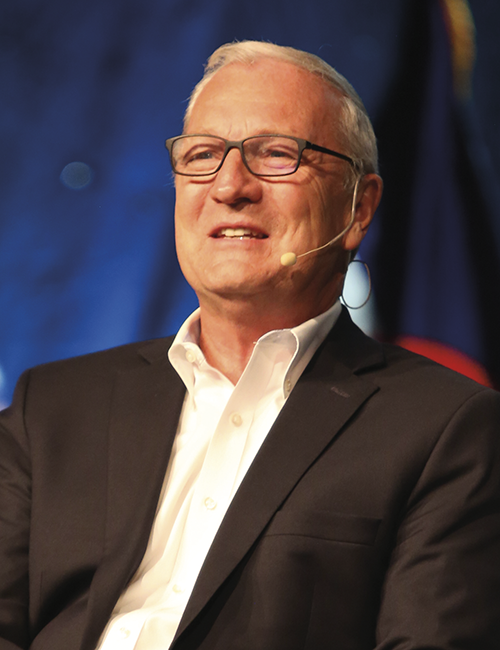 KEVIN CRAMER
KEVIN CRAMER
Republican
www.kevincramer.org
Kevin Cramer was elected to the U.S. Senate in 2018 after three terms in the U.S. House of Representatives, becoming the first Republican to occupy the seat in his lifetime. He is the 10th great-grandson of William Bradford and credits his Pilgrim roots for his passion for public service.
The “Chevron deference” question presumes legislation is needed. There has been a lot of lazy legislating over the decades. Too often, however, the bureaucracy presumes rules are necessary where legislation is absent, “ambiguous” or dissatisfactory to the bureaucracy. As the court ruled in West Virginia v. EPA, the absence of a law is not license for the bureaucracy to create one. In Chevron, they rightly ruled where ambiguity exists, it is the responsibility of the courts to determine constitutionality and congressional intent, not unelected bureaucrats. When Congress doesn’t act, it may be because no action is needed.
Our agriculture and energy producers need fewer laws and regulations, not more. With less authority, the first job of Congress should be to eliminate jobs no longer needed. For example, since the Supreme Court ruling on “waters of the United States” reduced waters under federal jurisdiction as much as 90%, we should get rid of 90% of Corps of Engineers staff working on it. Sometimes, less is more.
Federalism as conceived by the founders grants little power to the government, while empowering states. Even Congress should refrain from imposing mediocrity on states.
REPRESENTATIVE IN CONGRESS (2-year term)
Electric cooperatives are committed to providing safe, reliable and affordable electricity. Supply chain, inflation, increased regulation, energy policy and other challenges are making it more difficult. If elected as North Dakotan’s lone representative in the U.S. House, what would you do to help our industry meet the growing demand for electricity?
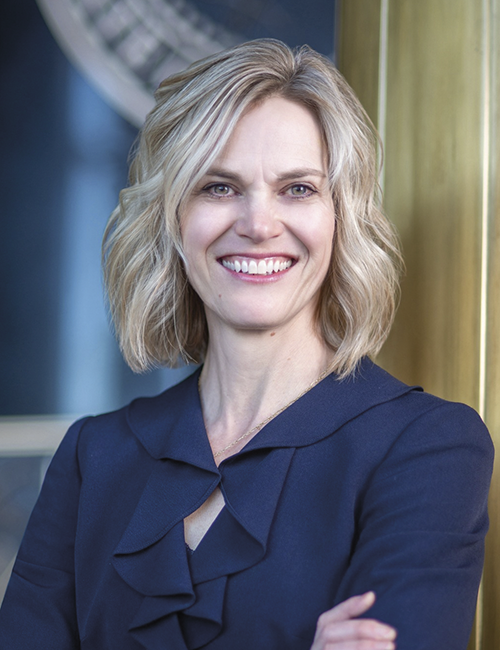 JULIE FEDORCHAK
JULIE FEDORCHAK
Republican
www.julie4nd.com
Julie Fedorchak, a fourth-generation North Dakotan, has 30 years of business and government experience, including 12 years on the Public Service Commission. She is currently president of the National Association of Regulatory Utility Commissioners or NARUC. Julie and her husband, Mike, live in Mandan and have three college-aged children.
Few Americans realize how vulnerable our power grid is today. Two-thirds of our nation is at risk of not meeting power demand. In a nation blessed with energy resources, we should never run short.
My 12 years serving on the Public Service Commission and multiple national leadership roles give me a unique perspective to engage in national energy policies in a credible and effective way. North Dakota can feed our nation’s growing appetite for energy with our extensive oil, natural gas, coal, wind and renewable fuel resources, and new innovations in carbon capture and hydrogen.
As your representative, I’ll support investments in grid technologies and critical infrastructure to meet growing demand. I will stand against excessive regulations like the Environmental Protection Agency’s (EPA) greenhouse gas and Mercury and Air Toxics Standards (MATS) rules that unfairly target our coal industry, jeopardize our power plants and drive up costs.
To meet growing demand, we need a true “all-of-the-above” approach that harnesses our natural resources and emphasizes the reliability and affordability of power, while creating clean energy innovations for our state, nation and world. I’ll be a leader in the House on day one, listening to North Dakotans, and ensuring our energy needs are met and our nation isn’t left in the dark.
 TRYGVE HAMMER
TRYGVE HAMMER
Democratic-NPL
www.hammerfornd.com
Trygve Hammer is a U.S. Navy and Marine Corps combat veteran, a former public school teacher, freight rail conductor and oil field roughneck who grew up in Velva. He lives by the ethos, “Officers eat last,” and is ready to serve as your next congressman, putting North Dakotans' needs first.
Electric cooperatives, the unsung heroes of our rural communities, owe their origins to the determination of North Dakota’s pioneers and the vision of leaders like Franklin D. Roosevelt, who created the Rural Electrification Administration in 1935.
If elected, I will fiercely advocate for our cooperatives by addressing supply chain bottlenecks and combating inflation head-on. Congress must stop stalling critical legislation like the farm bill, which is essential for financing electric infrastructure and promoting clean energy initiatives. We need smart regulation – not overregulation – that fosters innovation and efficiency.
I will also fight against burdensome EPA rules that drive up costs for rural families and threaten our cooperatives. By investing in renewable energy, grid modernization and robust broadband networks, we can meet growing demands sustainably.
We must honor our cooperatives’ legacy by ensuring they remain robust and ready to power North Dakota’s future, making every challenge a catalyst for progress.
PUBLIC SERVICE COMMISSIONER (6-year term)
The North American Electric Reliability Corporation, a not-for-profit international regulatory authority and electric reliability watchdog, has warned electric reliability is in jeopardy and the risk of rolling blackouts is rising. It recently listed energy policy as a newfound reliability risk. Indeed, in North Dakota we often see policies, such as mandates from other states, impacting operation of North Dakota facilities. As public service commissioner, what would you do to help address the reliability of the electric grid?
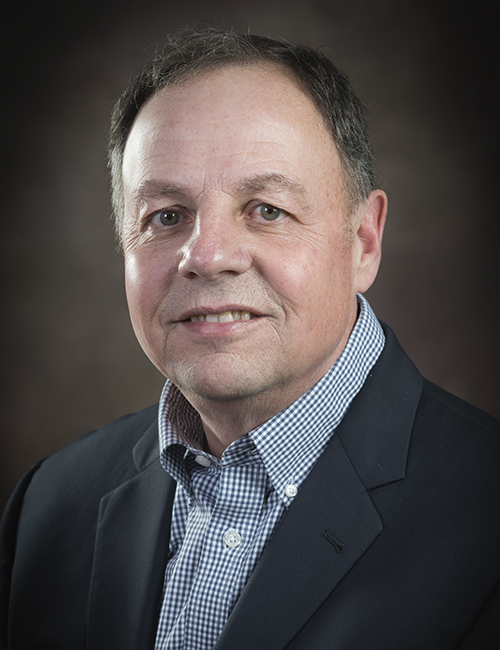 RANDY CHRISTMANN
RANDY CHRISTMANN
Republican
www.randychristmann.com
Randy Christmann was elected to the Public Service Commission in 2012 and reelected in 2018, after serving for 18 years in the state Senate. He is a National Guard veteran, North Dakota State University graduate and husband to Bethanie. Previously, he was a cattle rancher and served as a rural telecommunications cooperative director.
Because of federal law, “regional transmission organizations” such as Midcontinent Independent System Operator (MISO) and Southwest Power Pool (SPP) have significant authority over the electric grid, meaning policy mandates from other states do impact our utilities. However, with strong and focused leadership, this also means we can impact those states, too.
North Dakota has utilities that have chosen to join MISO, and other N.D. utilities joined SPP. Under the current commissioners, the N.D. Public Service Commission (PSC) has been aggressively involved in both organizations.
I take the lead for the PSC with SPP. We have made significant progress. In 2021, as chairman of SPP’s Regional State Committee, I led the way to increasing the generation reserve margin each utility must maintain. This required member utility companies to do more to meet reliability standards. We are currently in the process of raising this again.
Readers must be aware that America’s push to add subsidized, intermittent electric generation sources like wind and solar puts those facilities at an advantage over reliable generation sources like coal. That is why coal plants across the country have been shutting down at an alarming rate. I have been a loud voice in North Dakota and nationally to stop unfair subsidies and save our coal industry.
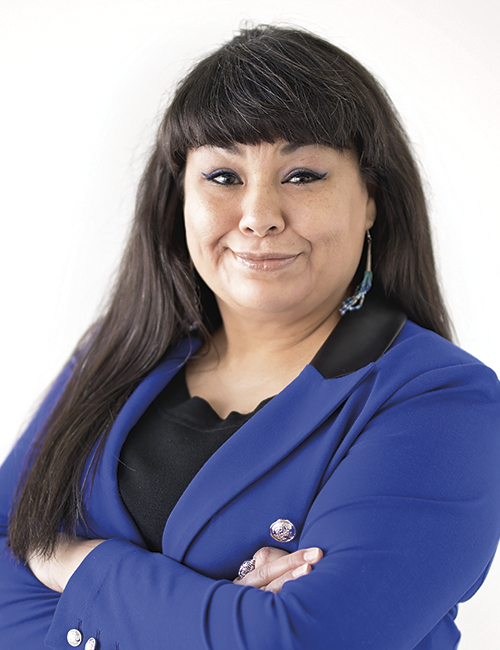 TRACEY L. WILKIE
TRACEY L. WILKIE
Democratic-NPL
www.facebook.com/wilkie4nd
Waabishki Giiwedin Ikwe (White North Wind Woman) – Tracey L. Wilkie – is a 100th generation North Dakotan. She is a sixth-generation Wilkie, of Scottish settlers and Metis descent in Canada, and a citizen of the Turtle Mountain Band of Chippewa, where she was raised. She has more than 30 years of public service experience and extensive AFSCME Local 88 experience.
The electric grid has been basically unchanged for many years in North Dakota and across the United States. The reliability of it is challenging, as we sometimes go along with other states.
North Dakota is unique with our state bank, state mill and elevator. Our forefathers were looking out for our best interest, and it's in our traditional teachings to look out for the next seven generations. I plan to do that by using my experience in policy, problem solving and negotiation on the Public Service Commission by supporting a greener North Dakota.
I support the current administration in the program that has recently rolled out with solar and distributed energy resources to help improve electric grid reliability and climate resilience as well, which is especially important in disadvantaged communities that have long been underserved. I will have boots on the ground, educating North Dakotans on federal tax credits, air quality and the Rural Energy for America Program. With education on sustainable with wind and solar, we will be prepared should our electric grid fail.
STATE AUDITOR (4-year term)
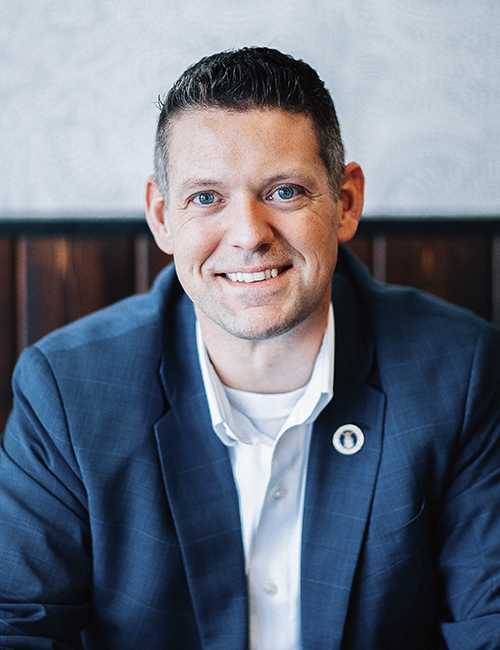
JOSHUA C. GALLION
Republican
www.joshgallion.com
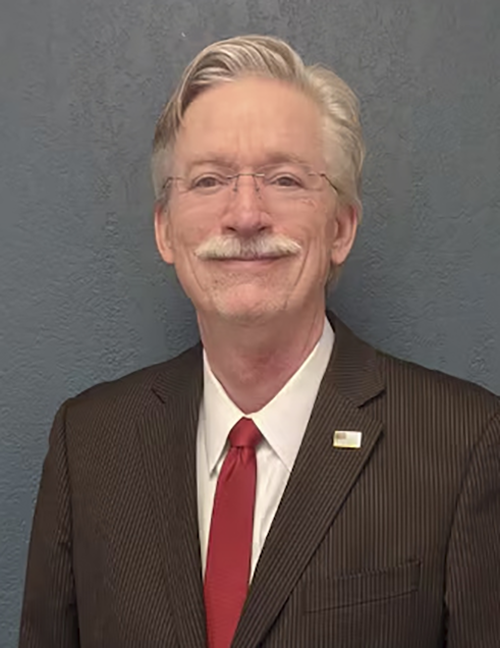
TIMOTHY C. (TIM) LAMB
Democratic-NPL
www.facebook.com/timothy.c.lamb.7
STATE TREASURER (4-year term)
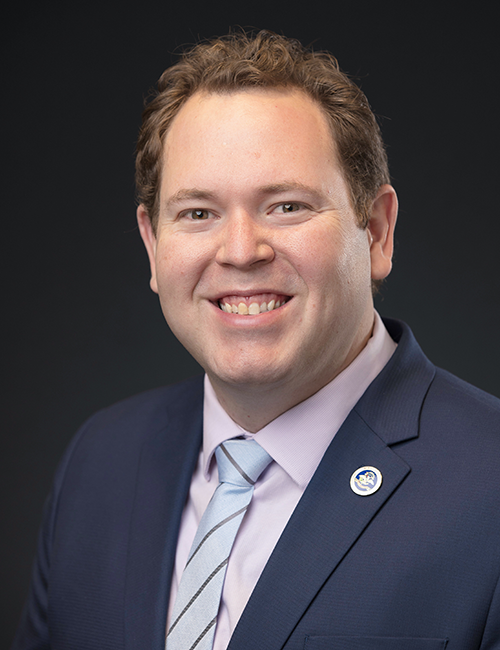
THOMAS BEADLE
Republican
www.thomasbeadle.com
INSURANCE COMMISSIONER (4-year term)
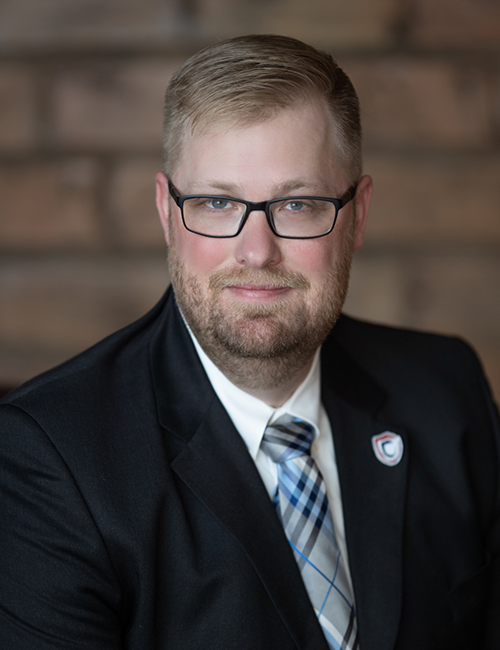
JON GODFREAD
Republican
www.godfreadfornd.com
SUPERINTENDENT OF PUBLIC INSTRUCTION (4-year term)
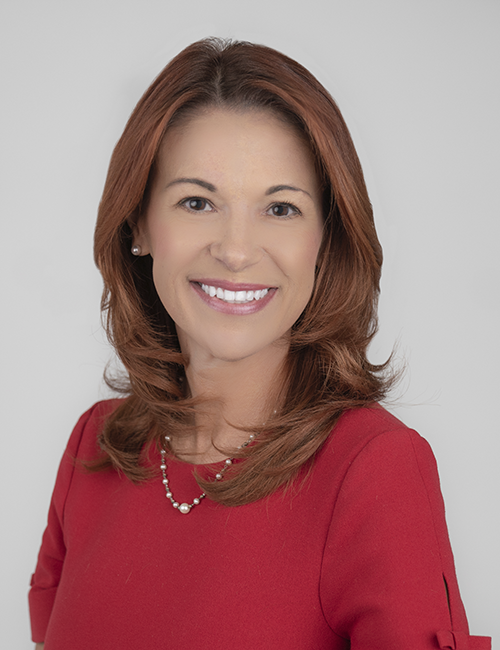
KIRSTEN BAESLER
Nonpartisan
www.kirstenbaesler.com
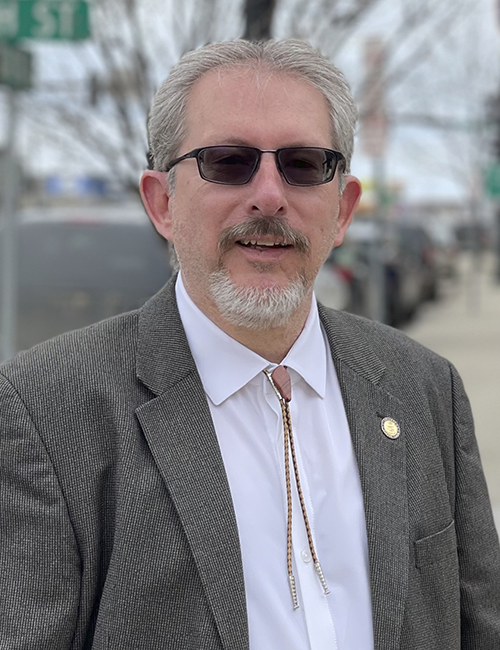
JASON HEITKAMP
Nonpartisan
www.jasonheitkamp4nd.com
What will YOU do to promote civility in politics, debate, government and within our communities?
The divide among people and political ideology is widening. Frustration over the state of public discourse in America exists. What will North Dakota candidates, if elected, commit to do about it? We asked them. Here’s what they said.
“I will keep doing what I‘ve been doing on the campaign trail throughout the state – showing up and listening to people from all walks of life. Everyone‘s perspective matters, and as a U.S. Senator, I‘ll prove to North Dakotans I approach issues with an open mind and heart. My upbringing taught me manners and the value of hard work. I will also protect free speech, in particular political speech, as our founders intended.”
-KATRINA CHRISTIANSEN
Democratic-NPL candidate for U.S. Senate
“I legislate by my conviction. Not every transaction requires a loser. When promoting legislation, I find opportunities where common ground or compromise is achievable. While co-leading the bipartisan infrastructure bill, I achieved North Dakota priorities, like formula funding and regulatory relief, by agreeing to modest funding for city transit projects. While leading on water legislation, I supported Democratic priorities on the coasts, while gaining support for Corps of Engineers projects at home. All three Water Resources Development Act laws under my tenure passed the committee unanimously. This year’s passed the Senate 100-0. I received the Bipartisan Policy Council Legislative Action Medal last Congress.”
-KEVIN CRAMER
Republican candidate for U.S. Senate
“The governor spurs policy deliberations by the Legislature, sets the tone for how we talk about our differences and provides the example for how to treat each other. Rather than attacking groups and taking away their rights, we should welcome and support all residents. The governor can promote robust bipartisan debate about policy, including in local town halls, but should also call out bullying attacks by elected officials that hurt and silence others. Let's set the stage for the public to talk to each other. Our children and grandchildren are watching. We can do better, starting at the top.”
-MERRILL PIEPKORN
Democratic-NPL candidate for governor
“I will approach the governor’s office with transparency and accessibility. Government is at its worst when it’s paternal. It causes distrust between government and the American people. I know most of these problems can be solved if we can be honest and transparent. I plan on bringing those qualities to the governor's office.”
-KELLY ARMSTRONG
Republican candidate for governor
“Civility starts with listening. I will actively seek input from all constituents, regardless of political affiliation, as I’ve done throughout this campaign. North Dakotans have an independent streak, and we’re all tired of the political performance art. We need representatives who can reach across the aisle and communicate with others in good faith and leaders with the courage to confront incivility, even when it comes from powerful people within their party. Congress is so polarized it’s forgotten who they represent. I am running to represent all North Dakotans and intend to work across the aisle to get the job done.”
-TRYGVE HAMMER
Democratic-NPL candidate for U.S. House of Representatives
“I’m not interested in going to Washington to get famous on TV or social media, which just contributes to the rancor and divide. I seek to work on solutions to our nation’s biggest challenges, like energy policy, border security, food security and the debt. To this end, I will build relationships with anyone who is serious about governing, just as I have done as a leader in state government. By treating people with respect and seeking common ground, we can and must build governing coalitions large and strong enough to fix these problems and get our nation back on track.”
-JULIE FEDORCHAK
Republican candidate for U.S. House of Representatives
“I will use the communication skills I acquired working in the male-dominated, politically polarized field of criminal justice to be a voice of moderation on the Public Service Commission. With my years of public and community service, I enjoy being in the community, meeting North Dakota constituents where they are at, listening to concerns and seeing how I can be of service to the people. We are all in this together, and in the words of Sitting Bull, ‘Let us put our minds together and see what life we can make for our children.’”
-TRACEY L. WILKIE
Democratic-NPL candidate for Public Service Commission
“Those who have seen me in my church, my community, the state Senate or the Public Service Commission (PSC) know decorum and civility are extremely important to me. The PSC has held hearings that started in the morning and went until well after midnight to allow everyone to be heard. Many PSC meetings are broadcast live, or recordings are available on our website. If readers tune into our proceedings, they will see under my chairmanship, the PSC is an old-school model of proper procedure and civility, where we follow the law as it is written and where respect is still the norm.”
-RANDY CHRISTMANN
Republican candidate for Public Service Commission


